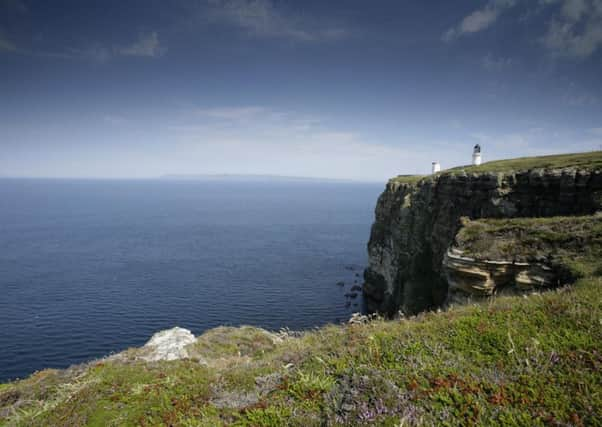RSPB buys nature reserve at Dunnet Head to protect birds


RSPB Scotland has purchased a nature reserve at Dunnet Head, which is a vital breeding ground for endangered birds including puffins, guillemots, razorbills, fulmars and kittiwakes.
The rugged peninsula is 13 miles east of Thurso in Caithness and boasts 300ft-high sandstone cliffs with a commanding outlook across the Pentland Firth.
Advertisement
Hide AdAdvertisement
Hide AdThe charity has been leasing the 40-acre coastal site and managing it as a reserve since 2008 but now a new grant from the Heritage Lottery Fund (HLF) has allowed a deal to be struck with previous owner Ben Colson.
Conservationists hope the purchase will help guarantee the survival of critically endangered species such as the kittiwake and puffin.
“Dunnet Head really is an amazing place,” said RSPB Scotland site manager Dave Jones.
“The views across to Orkney are absolutely stunning, but for us the most important aspect is the breeding seabirds and the opportunity this sites gives visitors to see these charismatic birds. Many of our seabird species are in serious decline, so it is crucial that their breeding sites are properly protected.
“We are delighted to be taking over as custodians for this special place.
“Ben Colson and his family have cared for Dunnet Head for many years and, like Ben, we wish to see this amazing seabird city looked after for future generations to enjoy.”
Mr Colson said: “We owned the land at Dunnet Head for over a quarter of a century, and our objective throughout has been to ensure that it is not commercially developed.
“So, whilst sad to be ending our relationship with the headland, we are delighted to have been able to agree this sale with RSPB Scotland, who I am confident will ensure it continues as a place of wild beauty.”
Advertisement
Hide AdAdvertisement
Hide AdScotland is home to almost half of the European Union’s breeding seabirds, including around half of the world’s northern gannets and a third of all Manx shearwaters.
Surveys suggest there are about 380,000 breeding pairs of kittiwakes left in the UK.
“Our natural heritage is a most precious resource,” added Lucy Casot, head of HLF Scotland. “HLF grants have helped to protect an amazing range habitats and species of plants and animals.”